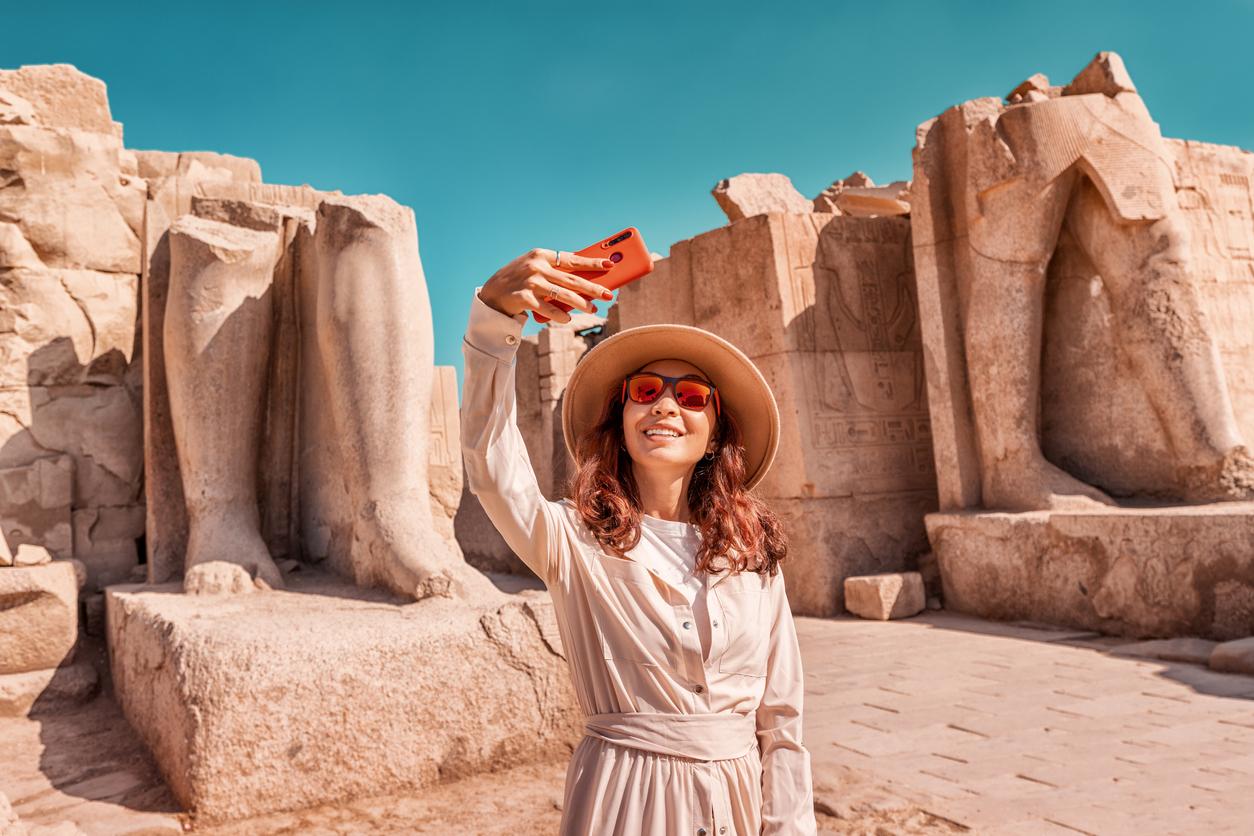
Embarking on your first journey to Egypt is akin to stepping back in time to a land where ancient wonders and vibrant cultures intertwine. As you plan a trip to Egypt, you'll discover it is a destination brimming with history, mystery, and adventure that promises to captivate your heart and soul. Whether you're an avid history buff, a passionate foodie, or a curious traveler, Egypt has something unique to offer.
Egypt is a treasure trove of iconic sights and experiences that have beckoned travelers for centuries. The Great Pyramids of Giza, one of the Seven Wonders of the Ancient World, stand as testament to the ingenuity and grandeur of ancient civilizations. No trip to Egypt would be complete without witnessing these monumental structures that have fascinated historians and adventurers alike.
Beyond the pyramids, the Valley of the Kings in Luxor invites you to explore the tombs of pharaohs, adorned with intricate hieroglyphics and vibrant wall paintings. As you wander through these ancient burial sites, you'll gain a deeper appreciation for the rich tapestry of history and culture that defines Egypt.
Don't miss the chance to cruise along the Nile River, the lifeblood of Egypt, where you can witness breathtaking sunsets and explore temples like Karnak and Edfu. Each site offers a glimpse into the spiritual and political life of ancient Egyptians, leaving you in awe of their achievements and legacy.
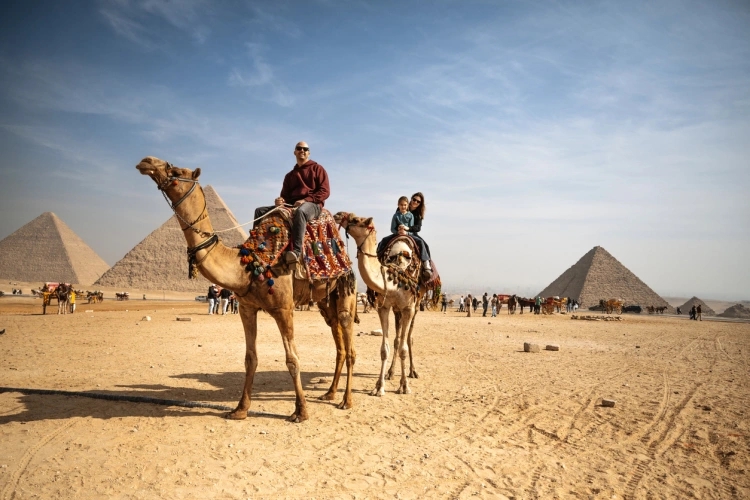
Egypt captivates travelers with its ancient wonders and natural beauty in a variety of destinations. The country's iconic pyramids and pristine beaches create remarkable experiences at every turn.
The Giza Pyramids are Egypt’s most iconic site, featuring the tombs of Pharaohs Khufu, Khafre, and Menkaure. Guarded by the Great Sphinx, these ancient wonders have fascinated travelers for centuries and are often the first stop for visitors arriving in Cairo.
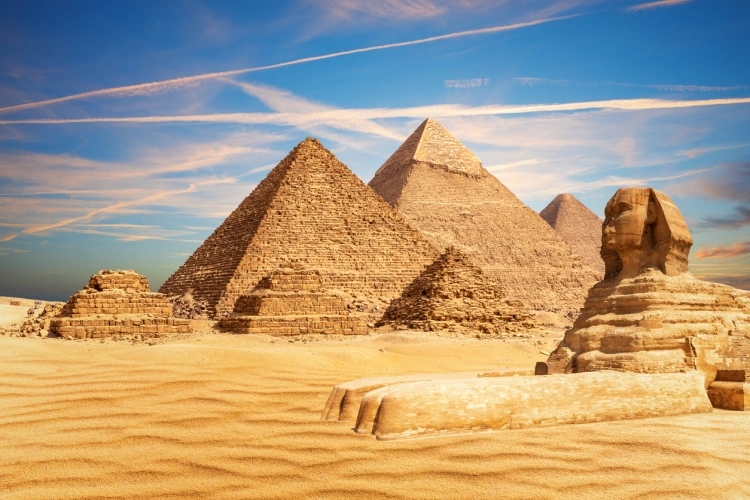
Nicknamed “the world’s greatest open-air museum,” Luxor is home to Karnak and Luxor Temples, the Valley of the Kings, and vibrant souqs. The east bank buzzes with life, while the west reveals hidden tombs of New Kingdom pharaohs and nobles in breathtaking detail.

Aswan offers a peaceful Nile-side retreat featuring the Philae Temple, Aswan High Dam, and Nubian Museum. Its relaxed pace contrasts Cairo’s chaos, and the unfinished obelisk shows ancient construction secrets. It was once a major trade hub between Egypt and Nubia.
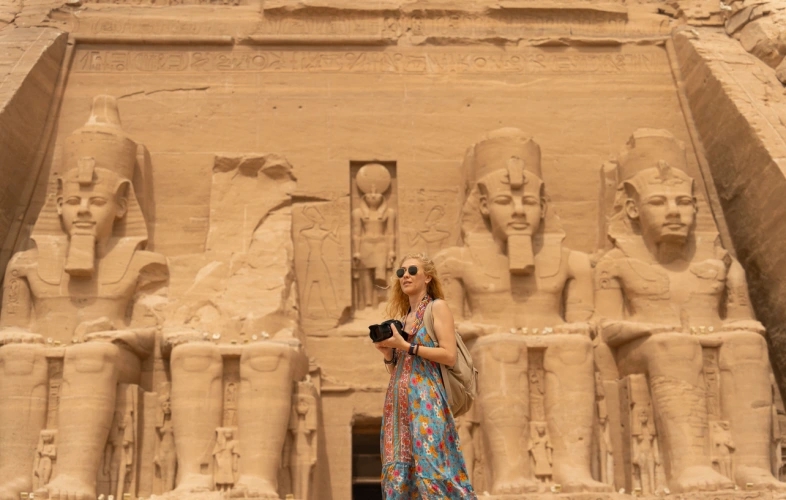
Near the Libyan border, Siwa Oasis offers stunning sunsets, palm groves, salt lakes, and natural springs. Known for its quiet charm and traditional culture, this remote desert gem is perfect for travelers seeking serenity, beauty, and a break from modern city life.
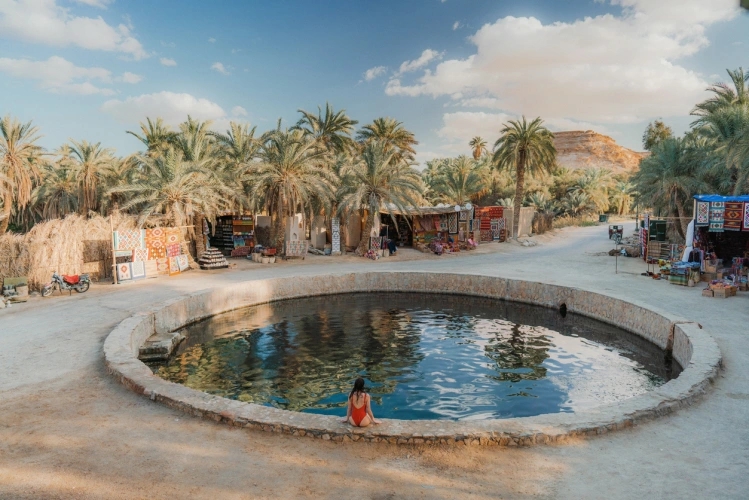
At Sinai’s southern tip, Sharm El-Sheikh is a luxury resort city with incredible diving. The Red Sea is rich in marine life and coral reefs, making it a paradise for snorkelers and divers. It's also a great jumping-off point to explore other Egyptian regions.
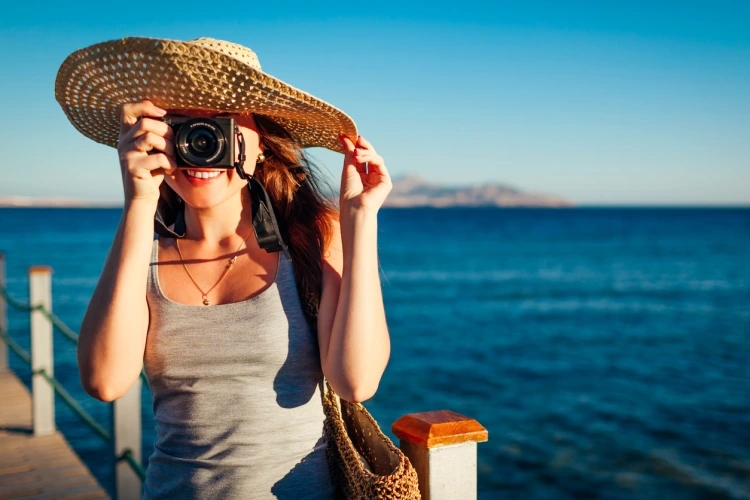
Cairo’s Historic District is full of narrow lanes, mosques, and monuments from the Fatimid to Mameluke eras. Khan el-Khalili bazaar lets you see artisans and coppersmiths at work. Beyond the pyramids, Cairo reveals a vibrant blend of history and daily life.
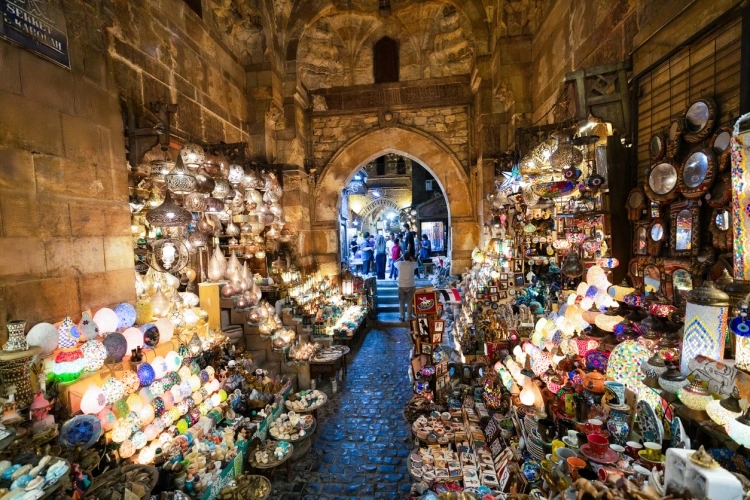
Timing your trip to Egypt is crucial to ensure a comfortable and enjoyable experience. The best time to visit is during the cooler months from October to April, when temperatures are milder, making it ideal for exploring outdoor sites. During this period, daytime temperatures range from 20°C to 30°C (68°F to 86°F), allowing you to wander the ancient sites without the intense heat.
If you're heading to the Red Sea resorts, May to September offers warm weather and sea breezes, ideal for coastal visits. However, inland spots like Luxor and Aswan can exceed 40°C. March and November are great shoulder months, with fewer crowds and milder weather. The best time to visit depends on your preferences and which regions you plan to explore.
Crafting the perfect itinerary for your Egyptian adventure requires a balance of iconic landmarks and off-the-beaten-path experiences. Start by listing the must-see attractions, such as the Pyramids of Giza, the Sphinx, and the Egyptian Museum. These sites provide a solid foundation for your itinerary and offer a glimpse into Egypt's ancient past.
Consider adding a few days to explore the less-traveled areas, like the Siwa Oasis or the White Desert. These destinations offer a unique perspective on Egypt's diverse landscapes and provide opportunities for adventure, such as sandboarding or camel trekking.
When planning your itinerary, allow for some flexibility to accommodate spontaneous discoveries or changes in plans. Egypt is a country full of surprises, and leaving room for the unexpected can lead to some of the most memorable experiences.
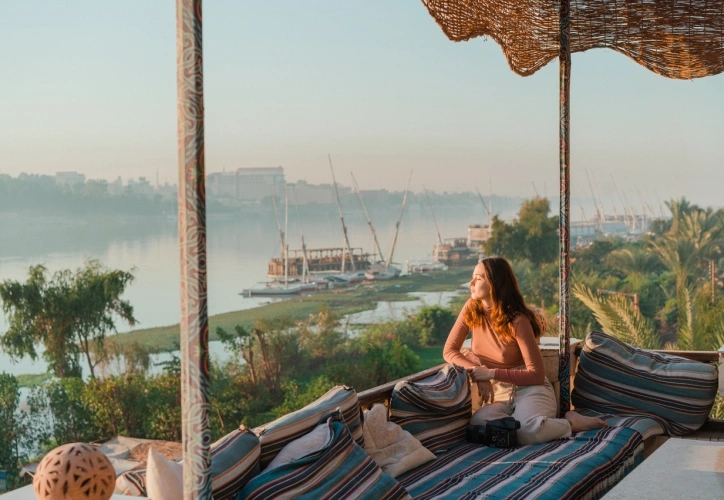
Packing for Egypt requires a thoughtful approach to ensure you're comfortable and prepared for various activities. Begin with lightweight, breathable clothing suitable for warm weather, and include a mix of casual and modest attire for visiting religious sites.
A wide-brimmed hat, sunglasses, and sunscreen are essential for protecting yourself from the sun, especially during outdoor excursions. Comfortable walking shoes are a must, as you'll likely spend significant time exploring archaeological sites and bustling markets.
Don't forget to pack a small backpack for day trips, along with essentials like a reusable water bottle and a power bank for charging your devices. These items will keep you hydrated and connected as you navigate your Egyptian adventure.
Getting around Egypt can be an exciting part of your journey, with a variety of transportation options to suit different preferences and budgets. For longer distances, consider domestic flights, which are efficient and often reasonably priced, connecting major cities like Cairo, Luxor, and Aswan.
For a more leisurely pace, consider taking a train. The overnight sleeper trains from Cairo to Luxor or Aswan offer a comfortable and scenic journey. Alternatively, buses and minibusses are widely available and provide a cost-effective way to travel between cities.
In urban areas, taxis and ride-sharing services like Uber and Careem are convenient for short trips. Be sure to negotiate the fare beforehand or use the app to avoid surprises. For a truly unique experience, try a traditional felucca ride on the Nile, offering a peaceful escape from the hustle and bustle of city life.
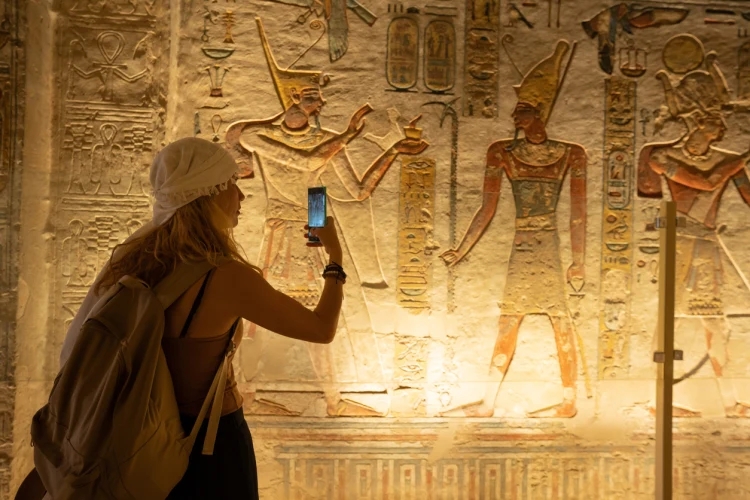
Safety is a top priority when traveling to any destination, and Egypt is no exception. By taking a few precautions, you can ensure a safe and enjoyable trip.
Stay Informed: Keep up with local news and check travel advisories from your government before and during your trip. Egypt is generally safe for tourists, but awareness is key.
Be Aware of Your Surroundings: Always stay alert, especially in busy areas like markets or tourist hotspots. Use common sense and trust your instincts.
Protect Your Belongings: Use a money belt or crossbody bag to keep valuables secure. Avoid displaying expensive items and watch for pickpockets in crowded areas.
Avoid Political Gatherings: Steer clear of demonstrations or political events, as they can become unpredictable and are best avoided altogether.
Stay Hydrated: Egypt’s climate can be intense, particularly in summer. Carry water with you, drink regularly, and avoid extended exposure to the sun.
Use Sun Protection: Wear sunscreen, sunglasses, and a hat. Take breaks in shaded areas to prevent sunburn or heat exhaustion.
Egypt offers a diverse range of accommodation options to suit every traveler’s needs and budget. From luxurious five-star hotels overlooking the Nile to charming boutique guesthouses in historic neighborhoods, there’s something for everyone. Top choices include the Sofitel Legend Old Cataract Aswan, known for its historic charm and Nile views, and Marriott Mena House in Giza, which offers stunning views of the Pyramids.
For a truly unique stay, consider booking a room in a traditional Nubian guesthouse, such as Kato Dool Nubian House in Aswan, where you can experience local hospitality and culture firsthand. These accommodations often feature colorful decor and offer a glimpse into the daily life of the Nubian people.
If you’re traveling on a budget, hostels and budget hotels are plentiful, especially in popular tourist areas. Options like Dahab Hostel in Cairo or Happy Land Hotel in Luxor offer basic amenities and a friendly atmosphere, making it easy to meet fellow travelers and share experiences.
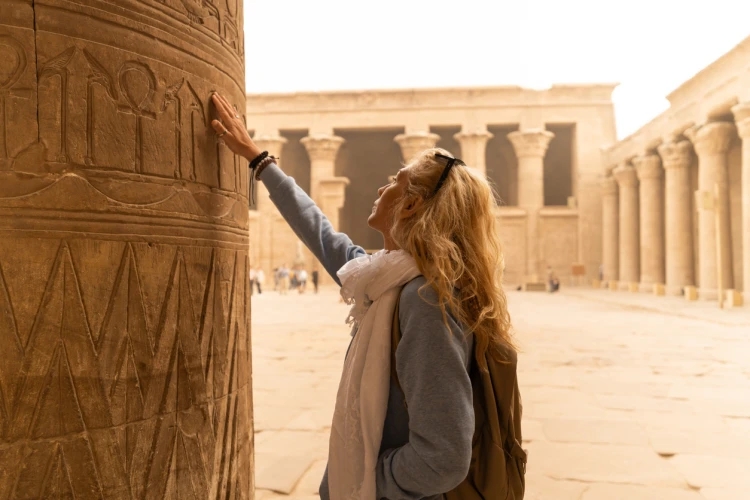
Egyptian cuisine is a delightful journey for the senses, offering a rich tapestry of flavors and textures. From hearty stews to aromatic spices, the country's culinary offerings reflect its diverse cultural heritage and provide a delicious introduction to Middle Eastern fare.
Traditional Egyptian Breakfast: Begin your day with ful medames (stewed fava beans), ta'ameya (Egyptian falafel), and warm baladi bread, often served with strong tea or freshly brewed coffee.
Koshari: The Ultimate Street Food: This filling dish combines rice, lentils, pasta, chickpeas, and crispy fried onions, all topped with spicy tomato sauce, a favorite among locals and visitors alike.
Molokhia: A traditional green soup made from jute leaves, molokhia is typically served with rice and meat, offering a unique flavor loved across generations.
Flavor & Simplicity: Egyptian meals often celebrate simple ingredients transformed by herbs, garlic, lemon, and cumin into comforting, unforgettable dishes.
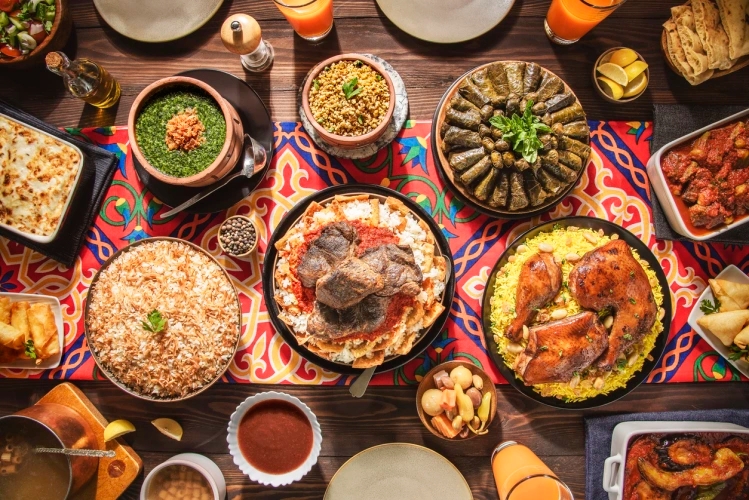
As we conclude this guide, I hope you're feeling inspired and ready to embark on your Egyptian adventure. With its timeless wonders, vibrant culture, and warm hospitality, Egypt promises an unforgettable experience that will leave you with cherished memories for years to come.
From the ancient marvels of Giza to the tranquil shores of the Red Sea, every corner of Egypt offers a unique story waiting to be discovered. Embrace the adventure, savor the flavors, and immerse yourself in the rich history and culture through unforgettable Egypt Tours that bring this magical destination to life.
Q1. When is the best time to visit Egypt?
The best time to visit Egypt is from October to April when the weather is mild and ideal for sightseeing and outdoor activities.
Q2. Do I need a visa to travel to Egypt?
Most travelers need a visa to enter Egypt, which can often be obtained on arrival or online via the e-visa system. Check your country’s specific requirements before traveling.
Q3. What currency is used in Egypt, and can I use credit cards?
Egypt travel tips suggest carrying some Egyptian Pounds (EGP) in cash, though credit cards are widely accepted in major cities and tourist areas.
Q4. Is Egypt safe for tourists?
A key Egypt travel tip is to stay informed about local safety, avoid political gatherings, and exercise common sense, especially in crowded places.
Q5. What should I pack for my trip to Egypt?
Egypt travel tips recommend packing lightweight clothing, sun protection, comfortable shoes, and modest attire for visiting religious sites.
Q6. Are English speakers common in Egypt?
Egypt travel tips note that English is widely spoken in tourist areas, but learning a few Arabic phrases can enhance your experience.
Q7. What are must-try foods when visiting Egypt?
For authentic cuisine, Egypt travel tips highlight trying dishes like koshari, ful medames, ta’ameya, and fresh seafood along the coast.
Q8. How can I get around Egypt?
Among the useful Egypt travel tips is to use taxis, buses, trains, domestic flights, or organized tours depending on your destinations and travel style.

© Copyright 2025 Get Egypt Tour. All rights reserved.